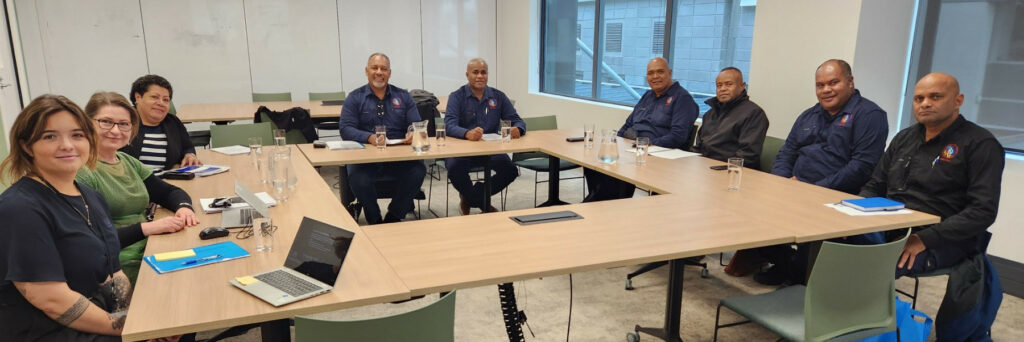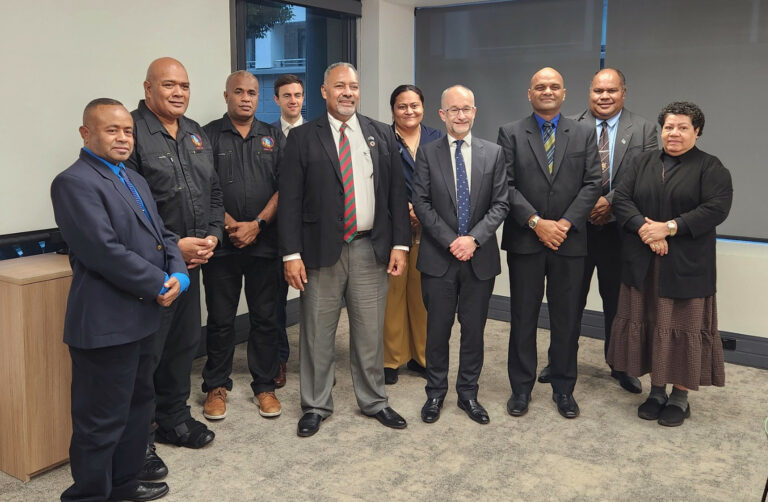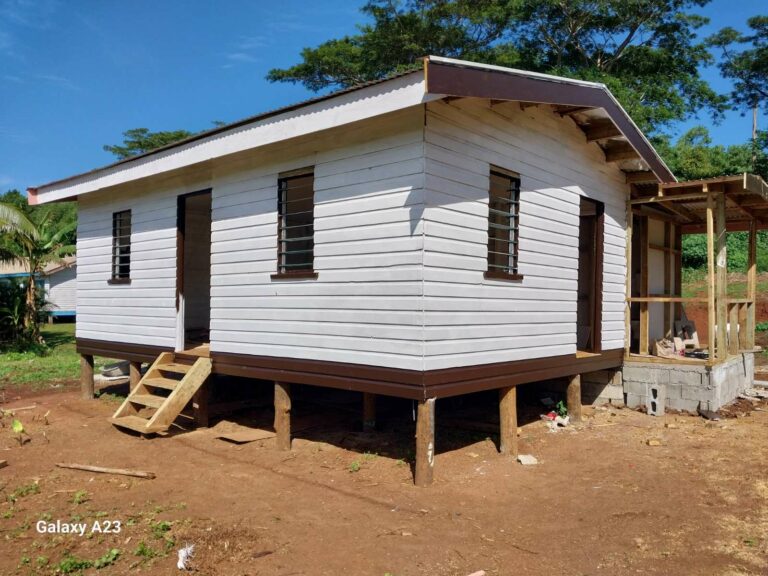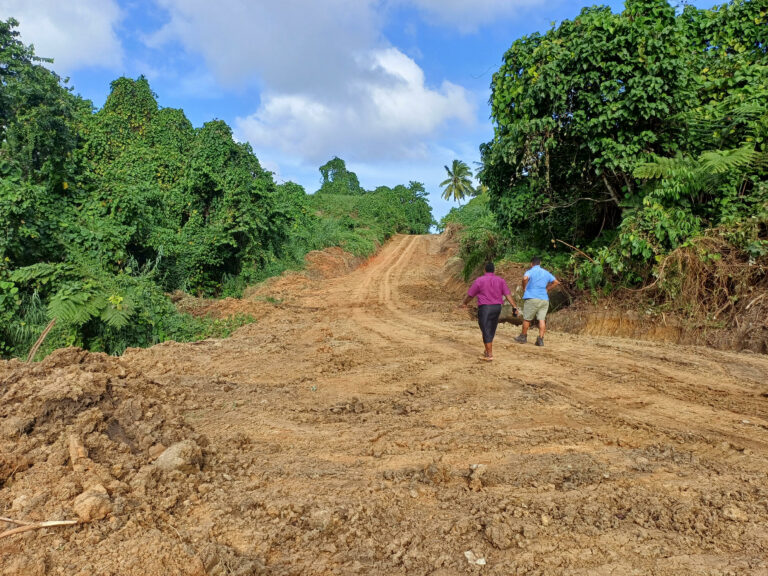
Caption: Members of the Ministry of Rural and Maritime Development and Disaster Management’s senior management with a team from the Wellington Regional Emergency Management Office (WREMO) in New Zealand.
SUVA – Members of the Ministry of Rural and Maritime Development and Disaster Management’s senior management recently met with a team from the Wellington Regional Emergency Management Office (WREMO) in New Zealand to discuss some innovative steps Fiji has taken to enhance emergency management preparedness.
Led by the Minister for Rural and Maritime Development and Disaster Management, Hon. Sakiasi Ditoka, the Ministry’s 8-member team was on a weeklong visit to NZ in June this year at the invitation of the New Zealand Government’s National Emergency Management Agency (NEMA) for peer-to-peer learning and consultation.
The team comprised of Permanent Secretary for Rural and Maritime Development and Disaster Management Mr. Isoa Talemaibua, the four Divisional Commissioner, Director National Disaster Management Office (NDMO) Ms. Vasiti Soko, and Director Corporate Services Mrs. Anaseini Tora.
In his remarks during the meeting, Hon. Ditoka highlighted that Fiji was doing similar work as done by its NZ counterpart.
“Just as the work you do here, in Fiji, we are navigating an era marked by increasingly frequent and severe natural disasters. It is imperative that we develop robust systems to protect our communities,” Hon. Ditoka highlighted.
“Fiji’s approach to operational preparedness is built on the foundation of strategic planning and efficient resource management. Recognising our constraints, we have focused on maximising the impact of available resources through a combination of innovation, collaboration, and community engagement.
“I am accompanied by our four Divisional Commissioners. Fiji is divided into four administrative boundaries, each headed by a Commissioner. These Commissioners lead their respective divisional responses and report their activities to the National Disaster Management Office. Their role is similar to yours here, where they handle operational matters during responses under the guidance of our Permanent Secretary and the National Disaster Management Office.”
Hon. Ditoka stated that Fiji’s approach to emergency management was multifaceted and responsive to the evolving dynamics, particularly amplified by climate change. The imperative for exchanging knowledge and learning from peers, he added, was crucial as we strive to build a robust network for sharing insights and lessons learned.
“Fiji recognises that collaboration is essential; we cannot achieve our goals alone and rely on partners like yourselves to enhance our capabilities and strengthen our network. These collective efforts not only safeguard our citizens but also provide a blueprint for other nations grappling with similar challenges.”
Hon. Ditoka highlighted some of the ongoing work being undertaken in partnership with non-government organisation (NGO) and civil society organisation (CSO) and donor partners to enhance community preparedness in Fiji.
He also provided some insights into challenges faced by the Government in reaching affected isolated communities in the immediate aftermath of a disaster, emphasising that the transportation of supplies and personnel to affected areas were usually difficult, especially during severe weather conditions.





